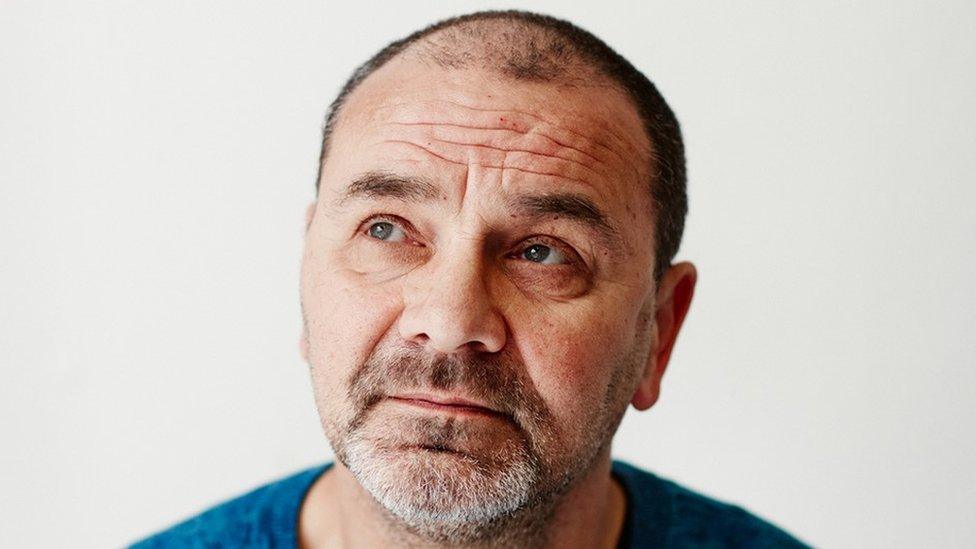Andy Malkinson cleared of 2003 rape 'after finally being listened to'
- Published
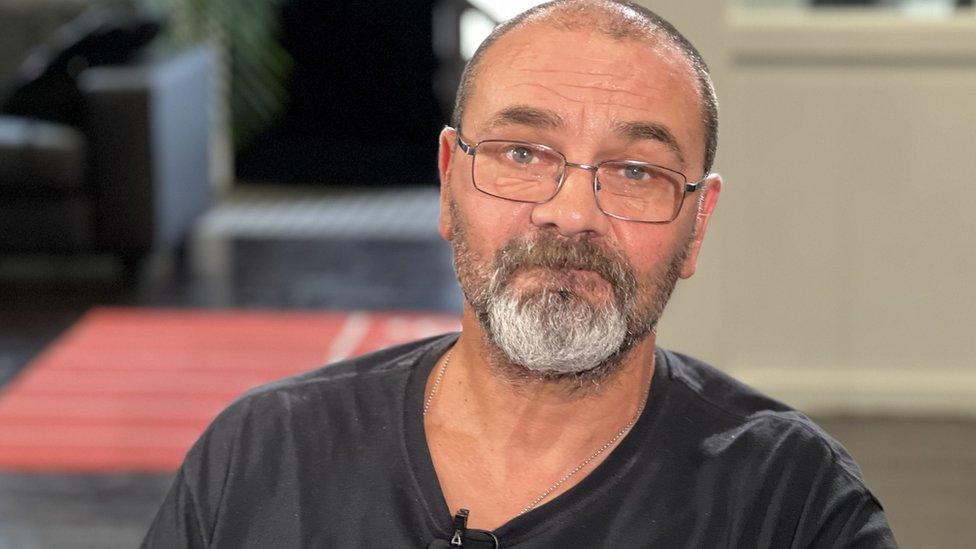
Andy Malkinson: "I have been let down. I've been terribly let down"
After 20 years protesting his innocence - 17 of them from inside prison - Andy Malkinson's conviction for rape has been quashed.
The Crown Prosecution Service did not contest his appeal in a case that raises serious questions about why he was jailed in the first place.
Speaking outside court after Wednesday's ruling, he said the conviction had left "a gaping black hole in my life", adding: "I did not commit the crime but I was treated as if I did."
The Court of Appeal's decision comes after DNA evidence implicated another man in the crime. No forensic evidence linked Mr Malkinson to the attack in 2003.
The first Mr Malkinson knew of the crime was when Greater Manchester Police (GMP) arrested him in his hometown of Grimsby, two weeks after the assault and attempted murder in Salford.
He had been in the area at the time - working temporarily as a security guard before planning to return to the Netherlands, which he wanted to make his permanent home.
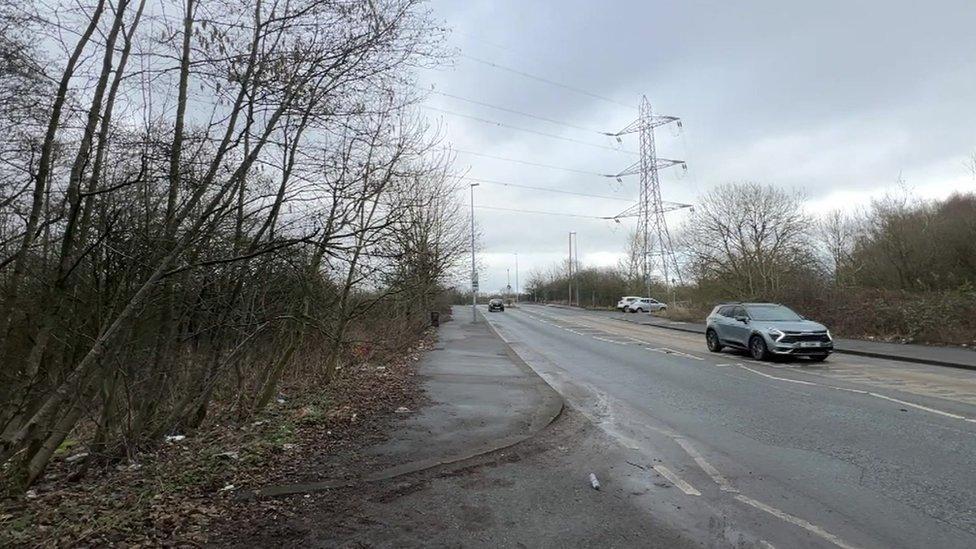
Roadside attack: But Andy Malkinson told police he wasn't there
Mr Malkinson firmly and persistently told detectives they had the wrong man.
He couldn't understand why they thought he was the attacker.
For a start, he looked nothing like the e-fit image of the suspect drawn up with the help of the victim.
The woman had left a deep scratch on her attacker's face. There was no evidence Mr Malkinson had been injured - none of his workmates had seen it - nor was there DNA or other forensic evidence to link him to the victim or location.
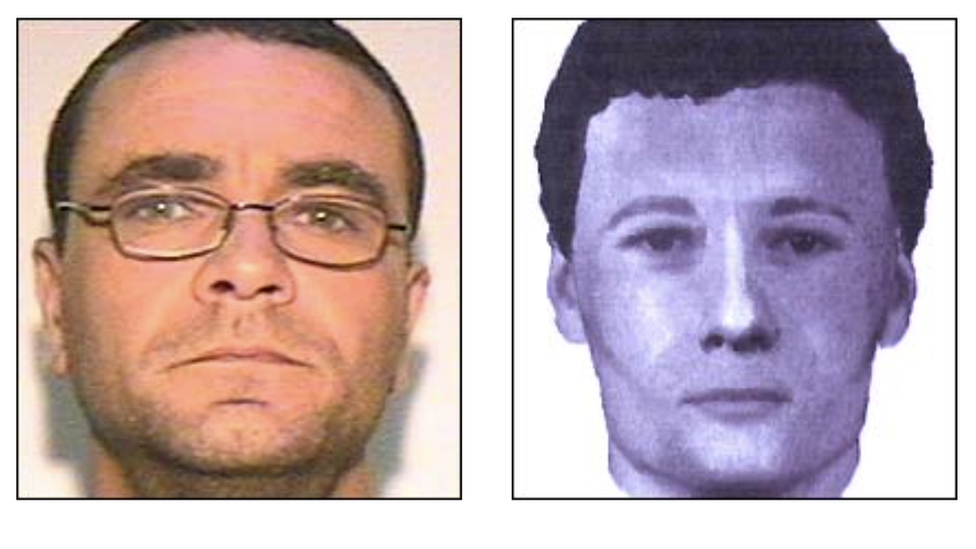
Andy Malkinson's custody picture two weeks after the rape - and the e-fit of the suspect
He was taller than how the attacker was described - and he also had prominent tattoos on his forearms that the victim had not mentioned.
Instead, she recalled a man who had a Bolton accent and a shiny hairless chest.
"[The police] made a big show of building up to this," Mr Malkinson recalls.
"I lifted my chest to show them. It was considerable growth. I'd never shaved my chest in my life. But they just proceeded, brushed it aside and barrelled on."
Then, when he voluntarily agreed to take part in an identity parade, the victim picked him out.
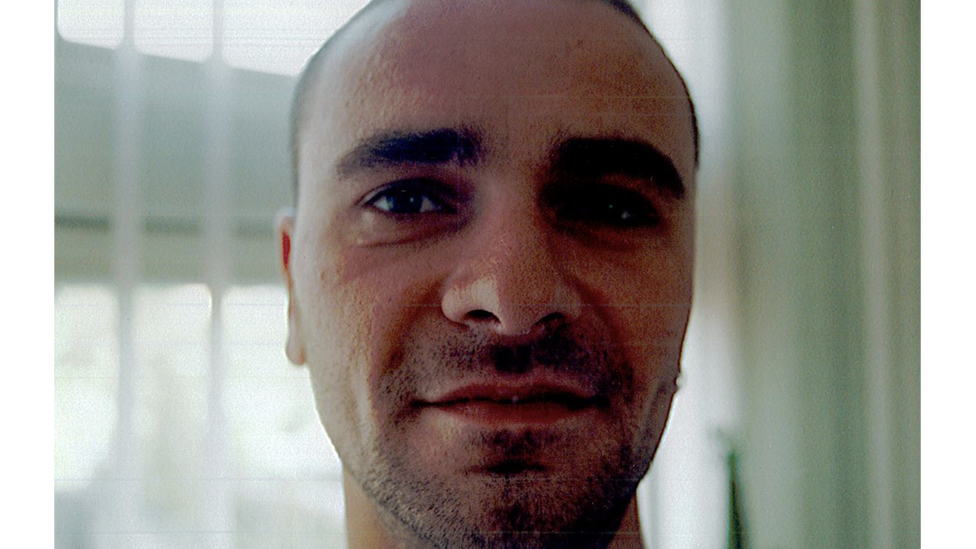
Long years in jail: Andy Malkinson dedicated himself to studying for a degree
"I felt the world... the floor fell from under me. I think I actually wept. I couldn't believe it," he recalls.
Mr Malkinson says it began to feel that circumstances were conspiring against him.
He told police he would have been asleep at a fellow security guard's flat, where he had been staying as a guest.
The problem was his host could not remember the night in question. Neither man had a special reason to remember it.
'Slow-motion car crash'
Police had two witnesses, who claimed they'd seen the defendant. The jury weren't told that both had serious criminal records.
"I was kind of paralysed," says Mr Malkinson. "It felt like it was all being manipulated around me.
"It's like a slow-motion car crash. You're going through the windscreen and there's nothing you can do."
His conviction was by a majority verdict. The sentence was life. All Mr Malkinson could do was shout to the court that he was an innocent man.
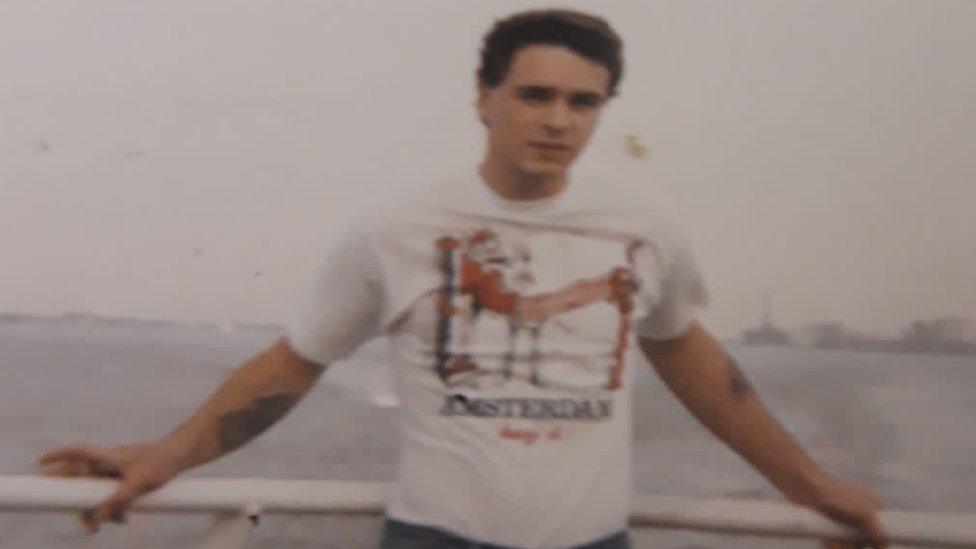
Travels: Andy Malkinson moved to the Netherlands as a younger man - and had planned to return
His first few months of prison time were "horrendous" - trying to work out who, if anyone, he could trust in a maximum security jail.
As time passed, it became clear how difficult it was going to be to get out.
If Mr Malkinson had admitted rape, he could have joined a rehabilitation programme. An expert psychologist may have ultimately recommended he was safe to be released on licence after his minimum term of seven years.
'I'm not going to lie'
But when he tentatively tried to get staff to hear his case, there was no glimmer in their eyes that they were willing to listen.
"You're asking an innocent man to make a false confession - a false confession in the guise of therapy," said Mr Malkinson.
"They said, 'There's no other way here. You'll probably die in prison'.
"I said, 'I didn't do it, and I'm not going to pretend I did'.
"I'm not going to lie and I'm not going to protect them by making a false confession."
That refusal to admit to a crime he did not commit led to 17 years in jail. He was finally released on a strict life licence in December 2020.
Mr Malkinson's case has been championed by Appeal, a specialist legal charity dedicated to investigating miscarriages of justice.
It says there were a series of missed opportunities to end his miscarriage of justice.
The Court of Appeal dismissed a challenge against his conviction in 2006.
He then applied to the Criminal Cases Review Commission (CCRC) - an independent body that examines potential miscarriages of justice.
It rejected his case twice, but his team says the commission could have carried out new DNA analysis and reviewed the police's files.
Appeal then launched legal action against GMP, demanding to see those files.
Ultimately, it was the charity's work - not the CCRC's or GMP's - that identified the new DNA evidence in March 2021, thanks to advances in the science.
The crucial sample had been found on the victim's vest top.
The National DNA Database then matched the profile to a man who had been added to it in 2012.
GMP have since arrested a man in Exeter and he remains under investigation.
It's been six months since the CCRC referred Mr Malkinson's conviction to the Court of Appeal in light of these developments.
In May, the Crown Prosecution Service confirmed it would not contest his appeal. But for a man living with a sex offenders' conviction and a life sentence it still feels like foot-dragging.
What does he now want from the state?
"I want the CCRC Chair Helen Pitcher to apologise for failings and commission an external, independent review aimed at learning lessons from what went wrong in their handling of my case," Mr Malkinson says.
"I asked the CCRC to commission new DNA testing to prove my innocence years ago, but they refused. They wouldn't even bother reviewing the police files."
"I am unspeakably angry with Greater Manchester Police. I want those who have done wrong to be brought to account.
"I want a full criminal investigation into what happened, how I came to lose half of my life and suffer incredible indignities, pain and psychological torture."
Those indignities would break many a man. But during his 17 years inside - including in three of the toughest, highest security jails in the country - Mr Malkinson mentally escaped with the help of books and the gym.
He dedicated the endless hours to learning and study - leaving prison with a university degree in maths and physics.
"I think it's made me a stronger person, but in a very difficult way - through a lot of pain and anguish and frustration," he says.
"I have a lot more patience than I ever thought I had. A lot more inner strength.
"But what a terrible way to find out."
GMP's Assistant Chief Constable Sarah Jackson said the force was "truly sorry" to Mr Malkinson over the "grave miscarriage of justice".

Sign up for our morning newsletter and get BBC News in your inbox.

Related topics
- Published24 May 2023
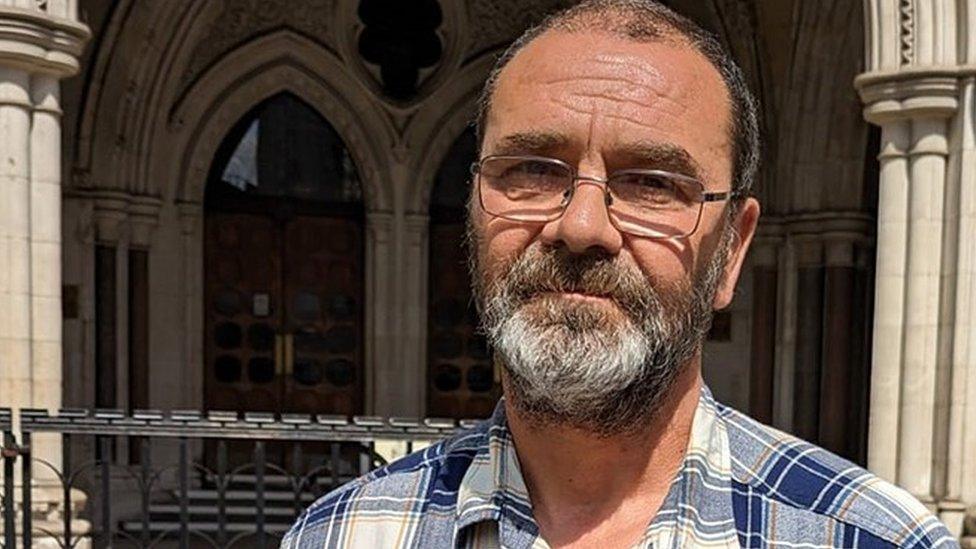
- Published22 February 2023
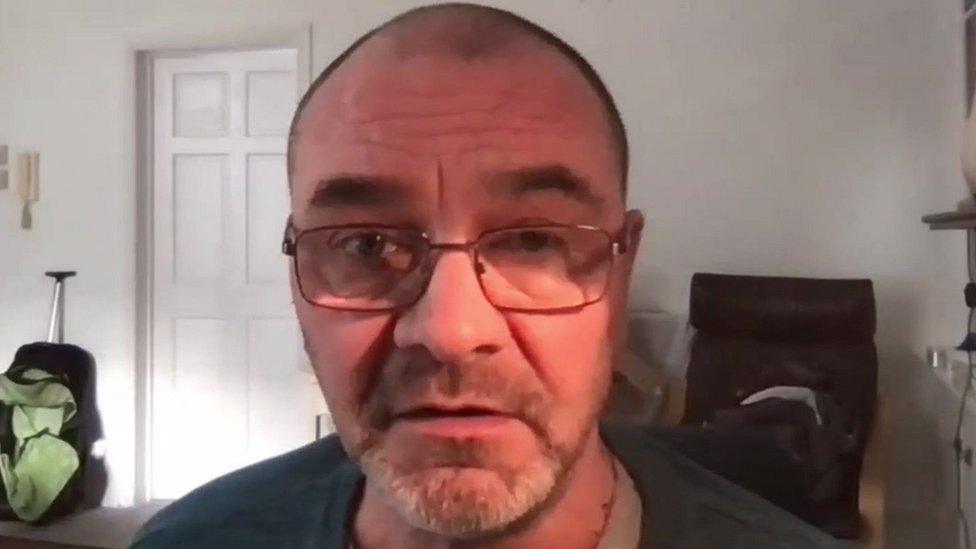
- Published24 January 2023
